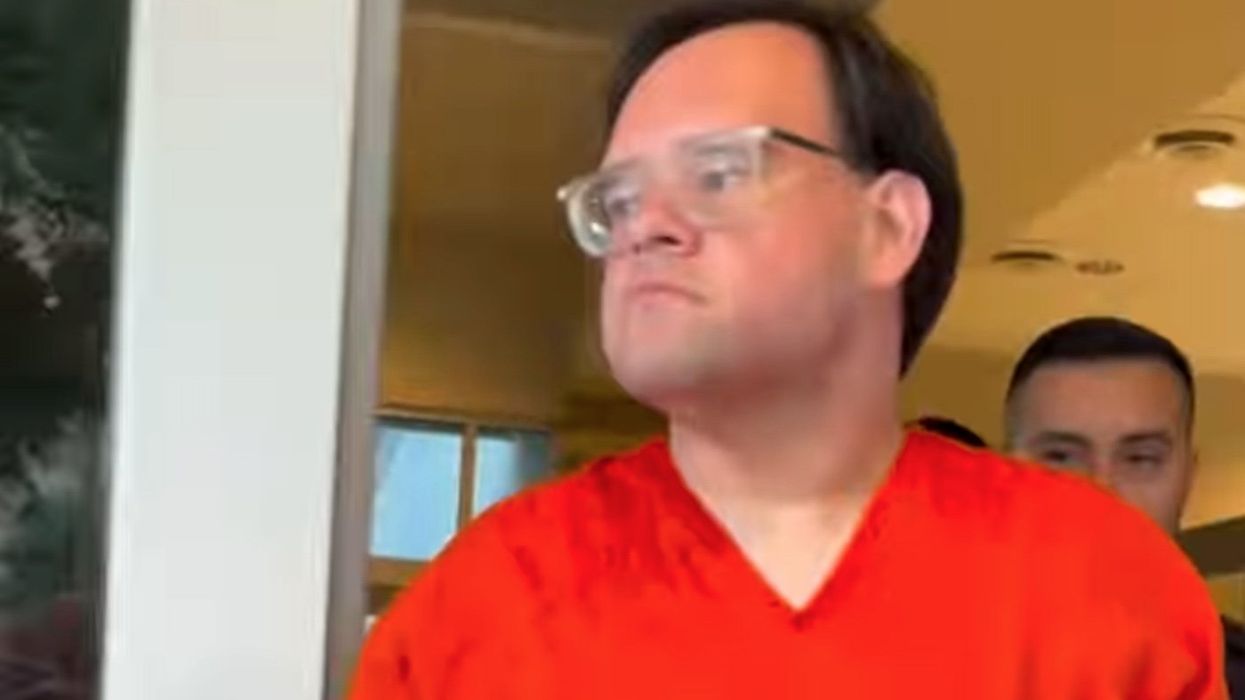
© 2025 Blaze Media LLC. All rights reserved.
Libertarian Author: Today's Lower Class Is 'More Dishonest,' 'Less Religious,' & 'Less Responsible' Than it Was 50 Years Ago
March 20, 2012
"...we’re losing a lot of what has made America exceptional."
 Noted libertarian author Charles Murray, famous for controversial works such as “The Bell Curve” and “Losing Ground,” has released his latest book titled “Coming Apart: The State of White America, 1960-2010.”
Noted libertarian author Charles Murray, famous for controversial works such as “The Bell Curve” and “Losing Ground,” has released his latest book titled “Coming Apart: The State of White America, 1960-2010.”
In “Coming Apart,” Murray investigates the growing gap between America's upper and lower classes, with a specific focus on whites (to show that neither race nor “income inequality” have anything to do with his findings), and warns that America is in a very dangerous position.
Murray posits that a conspicuous rift has grown between the “new upper class” and “the new lower class” and that it has gotten to the point where, culturally speaking, the two have nothing in common.
Even more disconcerting, according to Murray, is the fact that this rift has grown during times of economic stagnation as well as economic prosperity.
“It’s not too dramatic to say this,” Charles Murray said during a recent interview with PBS, “we’re losing a lot of what has made America exceptional. And as we have become increasingly a class society in which a big chunk of the people on the bottom no longer behave in the ways that are essential for a self-governing free society.”
According to the libertarian author, the "new lower class" has become less honest, less religious, and less responsible than “white working class people were half a century ago.” Crime is up, marriage is down, rule of law is disregarded, and the number of those not even seeking employment is astounding.
To illustrate this point, Murray compares the affluent, upper-middle-class town of Belmont, MA., with the working-class town of Fishtown, PA.
By the early 2000s, only 48 percent of Fishtown's working-class were married, down from 84 percent in 1960; children living in households with both biological parents fell from 96 percent to 37 percent; the number of disabled quintupled from 2 percent to 10 percent; arrest rates for violent crime quadrupled from 125 to 592 per 100,000 people; and the percent attending church only once a year nearly doubled from 35 percent to 59 percent, according to the L.A. Times' Frederick Lynch.
Moreover, by 2008, almost 12 percent of prime-age males with a high school diploma were "not in the labor force" — quadruple the percentage from the all-time low of 3 percent in 1968, Lynch adds.
Now compare that to Belmont: 83 percent are married; 84 percent of children reside in two-biological-parent homes; less than 1 percent are on disability; and nearly 40 percent attend church only once a year. Furthermore, nearly all adult males are in the workforce. According to Murray, Belmont represents about 20 percent of the total U.S. population, whereas Fishtown represents about 30 percent.
 “We have a new lower class that’s large and growing that has fallen away from a lot of the basic core behaviors and institutions that made America work,” Murray said.
“We have a new lower class that’s large and growing that has fallen away from a lot of the basic core behaviors and institutions that made America work,” Murray said.
However, contrary to Murray's critics (e.g. Salon’s Joan Walsh, The Daily Beast’s David Frum, or AFL-CIO Deputy Chief of Staff Thea Lee), the goal of “Coming Apart” is not simply to condemn the “new lower class.” Instead, it is to demonstrate how the aforementioned cultural divide has been detrimental to both the “new lower class” as well as the “new upper class”: The former has experienced a precipitous decline in family and community life while the latter has insulated itself from the knowledge of these dangerous cultural shifts.
Which is worse: the class that has abandoned certain essential cultural institutions or the class that is unaware of the cultural rot taking place?
What is to be done?
Murray argues that it’s up to the class of people who still recognize and acknowledge the merits of religiosity and community life to encourage the return of those who have fallen away. But the word “encourage” is key: Murray says this should not be done through force of law or government mandates.
“It’s a very well verified social science finding that government programs don’t do a good job of solving the human problems that I’m discussing,” Murray said.
Murray explains that "Coming Apart" is more about cultural shifts and people than it is about mere economic trends and cold numbers; we should focus on real happiness and personal satisfaction as opposed to simply the promise of economic reward.
“The way that social norms become social norms is not through any systematic process. It is through a flowering of an understanding within a culture…I think these are ideas whose time has come,” Murray said during his PBS interview.
Watch the Murray/PBS interview via PBS News Hour:
Want to leave a tip?
We answer to you. Help keep our content free of advertisers and big tech censorship by leaving a tip today.
Want to join the conversation?
Already a subscriber?
more stories
Sign up for the Blaze newsletter
By signing up, you agree to our Privacy Policy and Terms of Use, and agree to receive content that may sometimes include advertisements. You may opt out at any time.
Related Content
© 2025 Blaze Media LLC. All rights reserved.
Get the stories that matter most delivered directly to your inbox.
By signing up, you agree to our Privacy Policy and Terms of Use, and agree to receive content that may sometimes include advertisements. You may opt out at any time.





